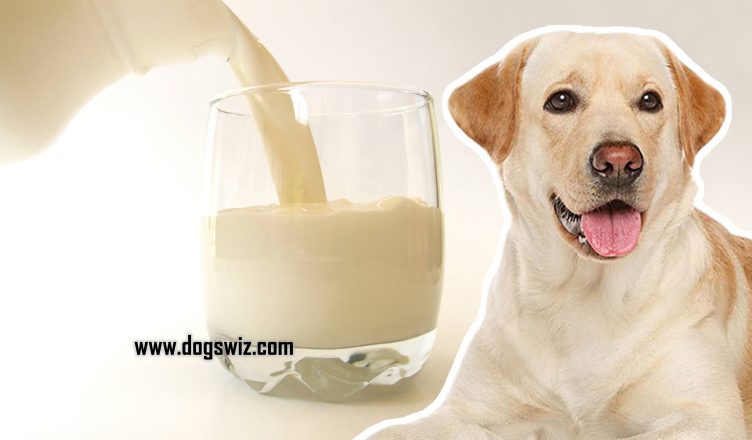Can dogs drink whole milk? This is a question that many dog owners might have asked themselves at some point. Whether it’s for their own pet or for a friend’s dog, the answer should be clear.
Milk isn’t particularly harmful to dogs. So, yes, dogs can drink whole milk, but although they can drink it doesn’t mean they should. Dogs could be lactose intolerant and might not be able to properly digest the milk. If you’re unsure whether or not your dog is lactose intolerant, we recommend you don’t feed any kind of milk or dairy products to your dog. Lactose intolerance isn’t particularly life-threatening but it can certainly cause discomfort and upset your dog’s stomach. Additionally, milk isn’t a necessary addition to a dog’s diet, but if you still want to feed some whole milk to your pooch, keep reading!
Milk For Dogs
Milk contains a sugar named lactose, which is essentially a type of carbohydrate. All mammals naturally produce an enzyme called lactase, which is required to break down and digest this sugar, dogs included. Puppies develop this enzyme in large amounts as they are dependent on their mother’s milk as their only source of food, but after the pup is weaned, the amount of lactase they produce drops significantly. Adult dogs, in turn, produce little to no lactase.
And when dogs lack enough lactase to break down and digest the lactose contained in milk, it leads to lactose intolerance. Dogs that are lactose intolerant will experience gastrointestinal discomfort, like diarrhea and/or vomiting after drinking some milk. They might also experience gas, bloating, loss of appetite, and pain or discomfort in their abdomen. So, dogs with lactose intolerance shouldn’t drink any milk at all.
Whole Milk For Dogs
If you’ve ascertained that your dog/pup can consume dairy products without any signs of lactose intolerance, it is fine to give them some whole milk. Whole milk isn’t particularly harmful to dogs if they drink it in small quantities. In fact, whole milk is naturally rich in nutrients your dog probably needs, like protein and calcium. However, whole milk is also naturally high in calories and fat, which can lead to obesity if your dog consumes too much of it. And if you give your dog whole milk regularly, you may also want to check his/her stool for signs of diarrhea.
If your dog is lactose intolerant, then we recommend you avoid milk altogether. Although some pets may be able to handle small amounts of whole milk without showing signs of lactose intolerance, it remains a risk for them when they can’t properly digest that sugar. If you have decided to give your dog some of the tasty dairy product, then stick to small portions or dilute it with some water or broth. This will lessen the risk of diarrhea and other digestive issues.
Conclusion
So, if you want to feed a dog a glass of milk every once in a while, whole milk is a perfectly acceptable option. Just make sure to feed the milk as an occasional treat and only feed it in moderation. As for dogs with underlying health problems and/or dogs on medication, it is better to consult your veterinarian before giving your dog any whole milk.
Thank you for reading the article.
To explore more, here are some other milk-related articles that you might be interested in.
How often do you feed milk to your dog? Did you know about the harmful effects? Or is your dog lactose intolerant? We would love to hear from you. Please share with our community in the comment section below.
